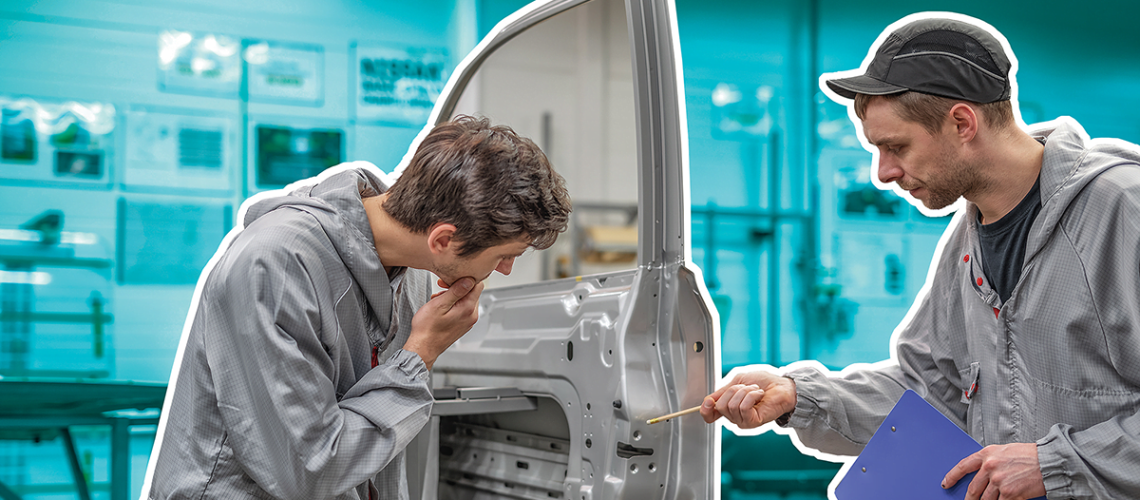Jaded in school? Collision advisory board cautions students to finish training & certs before joining the workforce.
AUTOBODY SOURCE STAFF
The Rundown
Advisory boards leverage a unique partnership between local collision shops, trade associations, schools & colleges, and State departments of education & labor to blend real-world needs with the educational process. Meetings are usually held in a roundtable format.
Why it Matters
In November 2021, TechForce Foundation released its 2021 Transportation Technician Supply & Demand Report, revealing that 100,000 new entrant collision techs are needed between 2021 and 2025. Overall demand for auto technicians nearly doubled in 2021, outpacing supply five to one.
Stakeholders
The Autobody Source joined a Collision Repair Advisory Board in the Southwestern U.S. last Fall comprised of representatives of CarStar, Reliable Risk Management, LKQ Corporation, Ford Motor Company, Carlisle Fluid Technologies, AutoNation, Enterprise Holdings, Matheson Gas, I-CAR, Wesco Group, 3M, Gerber Collision, BASF, Service King, Fix Auto USA, other corporations and school administrators. Names have been suppressed for this article.
What They’re Saying
School officials say: Instructors are encouraged that collision shops are offering students part-time work before they graduate, but “some adult students ask for a job while they’re still completing their one-year hybrid class. What’s happening is they’re dropping out of the program within the first four months because they’ve been employed by a collision shop, and we’re finding that the student still has to pay the school for the full amount of the course. This constantly happens. I’d like to have a mutual understanding with the industry and the shops where we’re placing students to work flexibly with student schedules in order for them complete the full course.”
“Our one-year program is great because it’s fast-paced, but unfortunately after four months some of the students feel that they have all the skills they need to work in a professional shop. It would be best for these shops to encourage students to complete their training and get the thirty I-CAR certifications they can obtain here first, and then reassure them they’ll be considered for hire. Or allow the student to complete their hours of work on-site without interfering with the class schedule. This equips them with the greatest resources they can get. We partner with shops to supplement the instruction we’re giving in the program.”
Advisory members say: “The school is facilitating the need for techs by training people to place them in the industry, but the students are getting snatched from the classroom to work, even though they or the parents have committed to spend something to get them enrolled. We all know the state of this industry, and the school is equipping students to get a job in a field they’re passionate about. I realize this is a problem, but I’m also excited because it sounds like we’re at a tipping point. Shops should be interested in graduates seeking in a solid career, and graduates should feel confident they’re aligning with shops committed to repairing vehicles the right way. Schools need to partner with the right collision centers who will honor that partnership.”
The Takeaway
School officials say: “Unfortunately, some students don’t understand the importance of developing ethics and soft skills. A student may be polite and quiet in class, or may not work as quickly or as skilled as the best. But if they have ethics, are professional and respectful, then we can train them to be successful. High school students in particular are usually more open to constructive criticism because they haven’t yet developed bad work habits.”
“As instructors we find that some adult students are jaded from rigorous or unfulfilling careers before transitioning to collision repair training, and as a result have developed a defensiveness that can prevent them from understanding how rigid the standards for collision repair instruction have to be. That’s what we struggle with in the classroom.”
What do you think? Join the discussion on Instagram
Find your local advisory committee at aseeducationfoundation.org/resources or call 703-669-6650.
